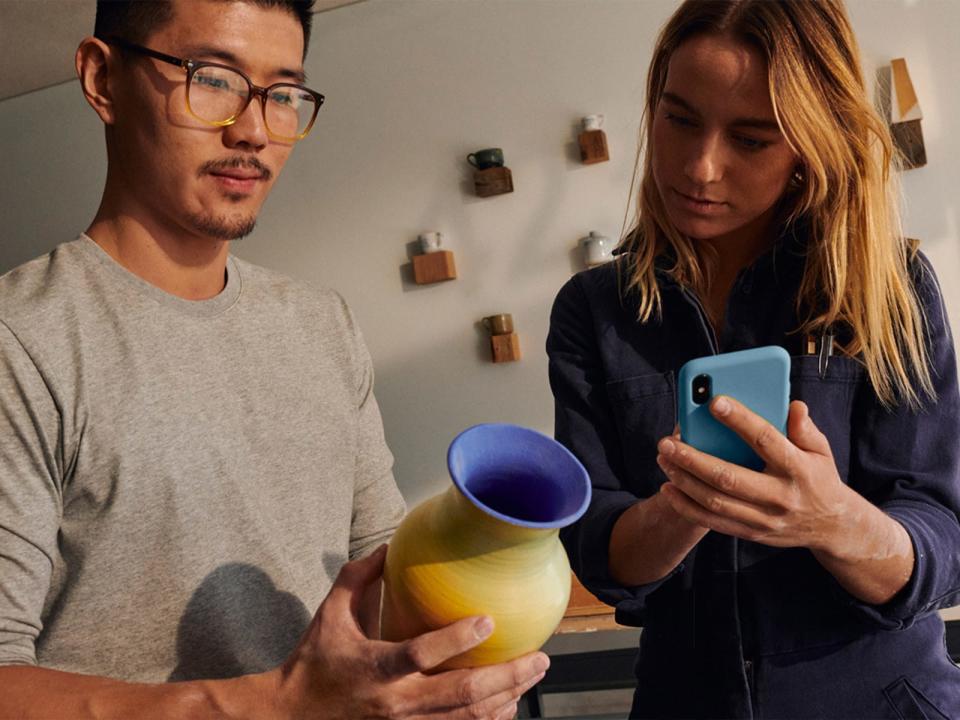Don’t underestimate the power of Facebook Pay
It'll help grease the wheels of Facebook's great unification.
Facebook's built payment platforms before, but they didn't take off in the way that the company wanted or needed. The mistake would be to assume that Facebook Pay, the social network's new e-commerce system, will fizzle in the way its predecessor did. It won't, because Facebook Pay is not only about helping users split the bill but also securing Facebook's future.
The pitch for Facebook Pay is pretty simple: Connect your chosen card or PayPal to your Facebook account. Agree to connect it to Messenger, WhatsApp and Instagram and you'll be able to send and receive money from any of those platforms from anywhere in the world. It is the logical extension of Facebook's plan to unify the infrastructure powering its various networks.
In March, CEO Mark Zuckerberg explained how this would work in his "privacy-focused vision" for the platform. "A person discovers a business on Instagram and easily transitions to their preferred messaging app for secure payments and customer support," he wrote. The missing part was a platform-wide commerce platform that would mean you never have to leave Facebook.
The benefit for consumers is convenience, especially once you've set up your payment details within the system. There's no need to fiddle with usernames or bank details, just find your friend's profile on their chosen (Facebook-owned) messenger and send them the cash. With ease of use, you would think, comes trust, something that Facebook is badly lacking in right now.
Adding payments helps justify Facebook's decision to aggregate its platforms into one and makes it easier to build new systems in the future. If commerce is embedded within Facebook's platform, then it'll be a cinch to recruit new users for any potential homegrown Twitch, Patreon or YouTube rival. After all, one of the biggest problems with hooking up new customers is the friction around signing up.
It's likely that each platform will sell the benefits of Facebook Pay to its users in different ways too. Facebook and Messenger will focus on Marketplace and Fundraisers. Messenger and WhatsApp will focus on peer-to-peer payments, and Instagram will be all in on commerce.
Advertisers, especially online-only businesses that use Instagram as a storefront, are going to love this. If you see something on your feed that you like, you could buy it with a single push of a button from inside the same app. That will not only reduce the ever-worrying friction but also allow advertisers to see the benefits of their targeting.
WhatsApp already lets you use it like this, but expect to see more companies go all in on Facebook as their only storefront. After all, you can use Instagram as a catalog, Facebook Pay to handle payments and WhatsApp for customer service. Combine that with Facebook's ad-targeting database and you'll be able to find and buy ads only for the people who want your product.
Facebook Pay may finally allow the company to make money on the back of WhatsApp's 1.6 billion users. WhatsApp isn't as popular in the US as other platforms, but it's huge in the rest of the world, and Facebook hasn't begun to exploit its potential. If Facebook Pay, with WhatsApp, becomes the de facto messenger-and-payments platform outside the US, it'll be worth a fortune.
Naturally, Facebook has outsourced the nuts and bolts of its system to Stripe and PayPal in the US and other processors elsewhere. It will offer fraud detection, biometric security and live support between the hours of 6 AM and 6 PM (PT). And it has pledged to not store or share your payment information with third parties, although it will still be able to examine your transaction history.
That, however, may not matter to the people who feel like Facebook is already beyond being trustworthy. After all, the company initially pledged to leave WhatsApp as a standalone app, but it changed its mind, resulting in CEO Jan Koum leaving the company. Actually, that's the same thing that Facebook said about Instagram, committing to "building and growing Instagram independently." So perhaps folks have a reason to be nervous.


